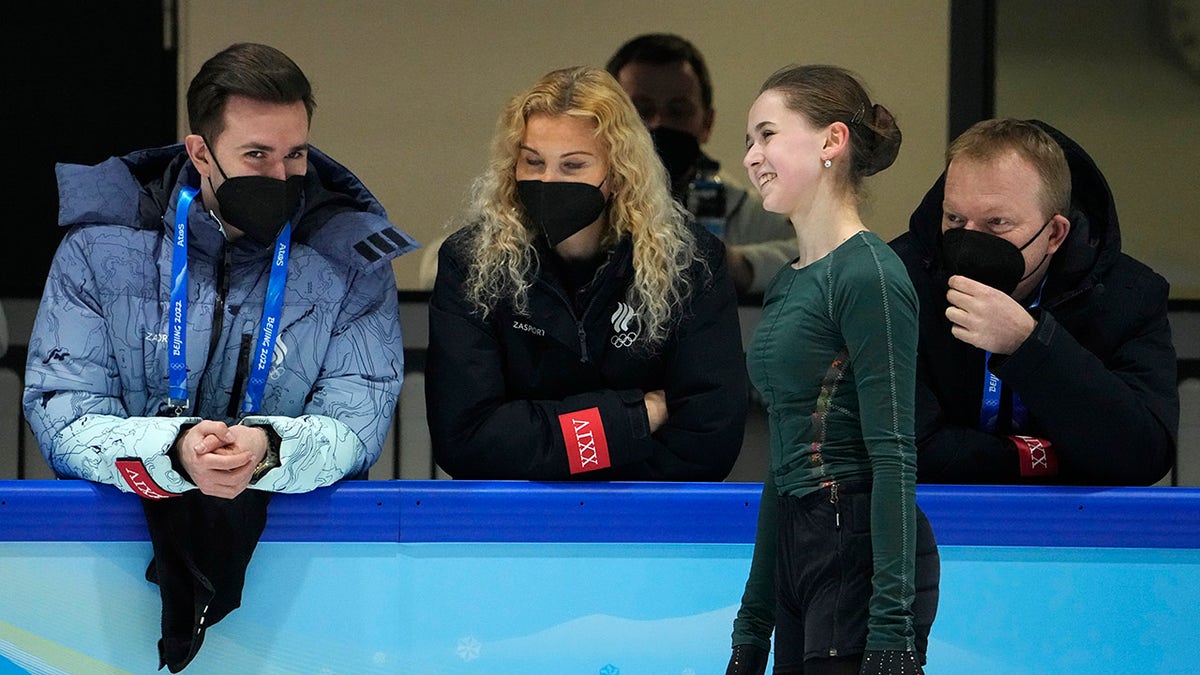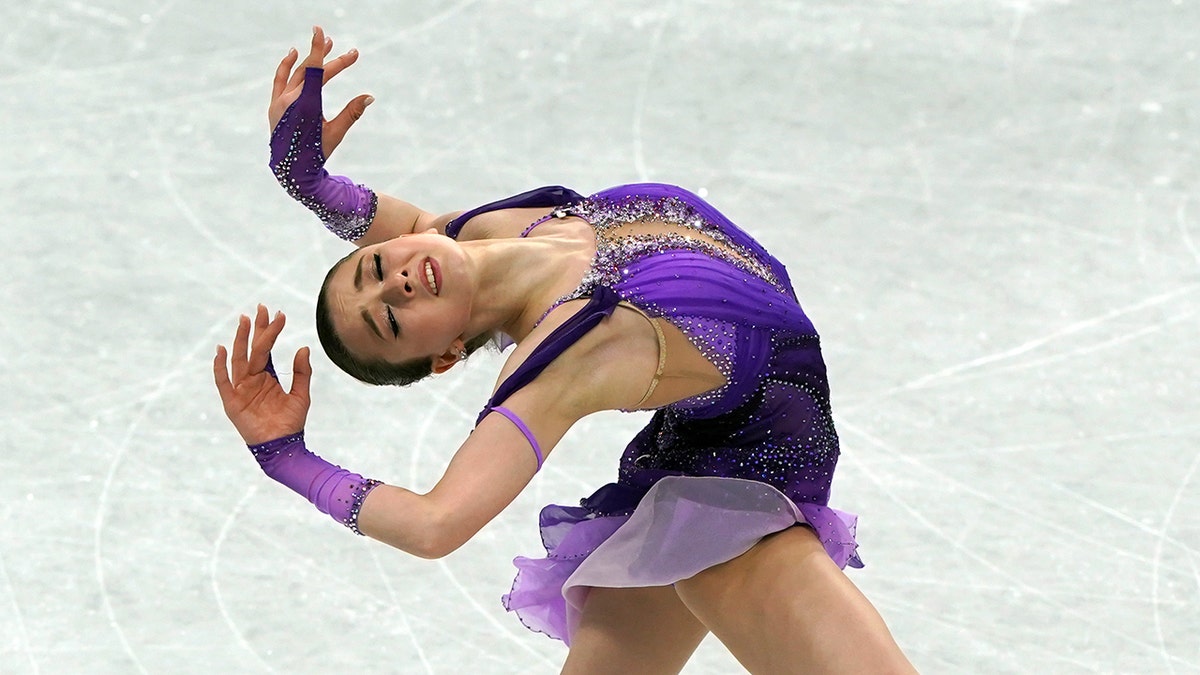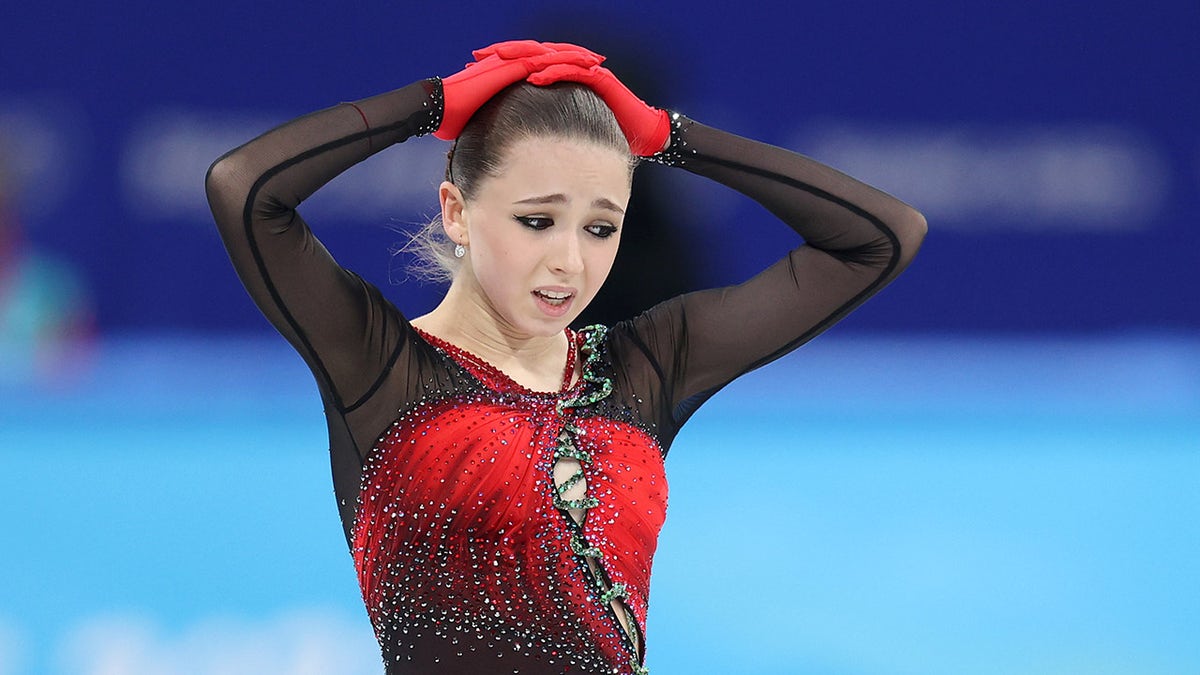Fox News Flash top headlines for February 16
Fox News Flash top headlines are here. Check out what's clicking on Foxnews.com.
The Russian Olympic Committee’s latest doping scandal involving teen figure skater Kamila Valieva continued to unravel with reports on Tuesday revealing that the 15-year-old athlete tested positive for three different substances meant to improve heart function in a sample taken prior to her arrival in Beijing.
Documents reviewed by The New York Times revealed that the lab in Stockholm that first detected the presence of trimetazidine in her sample taken on Dec. 25 at the 2022 Russian Figure Skating Championships in Saint Petersburg, Russia, also showed evidence of two other substances not banned by the World Anti-Doping Agency.
LIVE UPDATES: BEIJING OLYMPICS
According to a brief filed by the WADA, Valieva listed the substances on a doping control form: L-carnitine and Hypoxen.

Kamila Valieva, of the Russian Olympic Committee, talks to coaches at a training session at the 2022 Winter Olympics, Thursday, Feb. 10, 2022, in Beijing. (AP Photo/Jeff Roberson)
Two sources with knowledge of the briefing that spoke to The Associated Press on the condition of anonymity said the WADA argued that the presence of both substances undercuts Valieva’s argument that the banned drug entered her system accidentally.
Valieva’s sample came back positive last week after the Russian Olympic Committee took home the gold in the team event, prompting her initial ban. It was lifted by the Russian Anti-Doping Agency, but her case was taken before a Court of Arbitration for Sports (CAS) on Monday to determine if she could compete in the women’s event on Tuesday.
An International Olympic Committee official said Tuesday that during her hearing where she was eventually cleared to compete, Valieva said the banned substance may have been the result of contamination with medication her grandfather took regularly.
But the combination in Valieva’s sample is concerning.
CLICK HERE FOR MORE SPORTS COVERAGE ON FOXNEWS.COM

Russian Olympic Committee's Kamila Valieva during the Women Single Skating - Free Skating on day eleven of the Beijing 2022 Winter Olympic Games at the Capital Indoor Stadium, Beijing on Feb. 15, 2022. (Andrew Milligan/PA Images via Getty Images)
Hypoxen, a drug designed to increase oxygen flow to the heart, was a substance the U.S. Anti-Doping Agency recently tried, without success, to get placed on the banned list. L-carnitine, another oxygen-boosting performance enhancer, is banned if injected above certain thresholds.
Combining those with 2.1 nanograms of trimetazidine, the drug found in Valieva's system after a Dec. 25 test, is "an indication that something more serious is going on," USADA CEO Travis Tygart said.
"You use all of that to increase performance," he said. "It totally undermines the credibility" of Valieva's defense.
Valieva took first place in the women’s short program on Tuesday amid fierce backlash from the Olympic community. She looked emotional after her performance, advancing with a score of 82.16. The top 25 skaters in Tuesday’s event advanced to the women’s free skating medal event on Thursday. An additional skater qualified for the event as a result of Valieva’s qualification.
CLICK HERE TO GET THE FOX NEWS APP
If she medals in the event, the IOC will not hold a medal ceremony as a result of her positive drug test.

Kamila Valieva of Team ROC reacts during the Women Single Skating Free Skating Team Event on day three of the Beijing 2022 Winter Olympic Games at Capital Indoor Stadium on Feb. 7, 2022, in Beijing, China. (Catherine Ivill/Getty Images)
"There will be an asterisk against the results because they will be preliminary pending further investigation," IOC spokesman Mark Adams said, via Reuters. "We would prefer not to have that going on. My heart goes out to the athletes but the IOC has to follow the rules."
The Associated Press contributed to this report.

